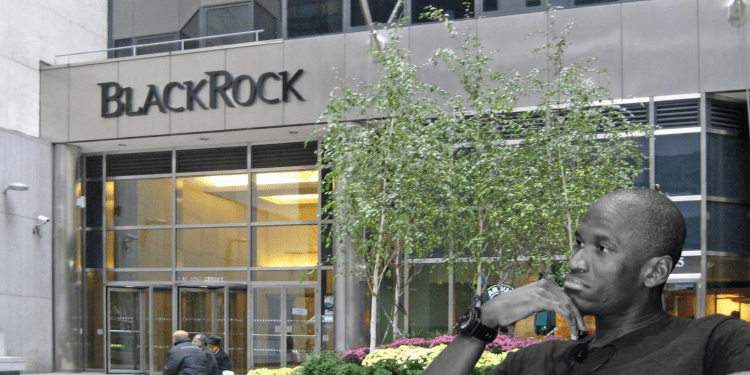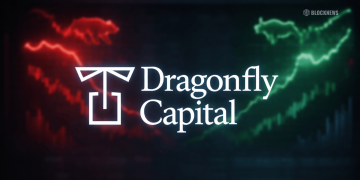- BlackRock’s plans for a Bitcoin ETF raise concerns about the potential centralization of the cryptocurrency.
- Arthur Hayes, co-founder of BitMEX, questions how the increased ownership and control by traditional finance giants like BlackRock might compromise Bitcoin’s decentralized nature and core principles.
- The entry of firms like BlackRock into the Bitcoin market could tip the balance of power, potentially undermining Bitcoin’s decentralization and resistance to censorship.
In a recent interview with Arthur Hayes, co-founder of BitMEX, concerns were raised about the potential impact of BlackRock, a major asset management firm, entering the Bitcoin sector. This article dives into the implications of BlackRock’s plans for a Bitcoin ETF and the worries surrounding the centralization of the leading cryptocurrency.
BlackRock’s Pending Bitcoin ETF and the Future of Bitcoin
BlackRock, the world’s largest asset management firm with trillions of dollars in assets, is awaiting a decision from the U.S. Securities and Exchange Commission (SEC) regarding its application for a spot Bitcoin ETF. This section explores the significance of BlackRock’s potential entry into the Bitcoin market and its impact on the cryptocurrency’s future.
During the interview, Arthur Hayes voiced concerns about the potential influence traditional finance giants like BlackRock could have on Bitcoin. He questioned whether the increased ownership and control by centralized asset managers might compromise Bitcoin’s original ethos and core principles. This section delves into Hayes’ concerns and their implications for the decentralization and censorship resistance of Bitcoin.
Balancing Traditional Finance and Crypto Ideals
The tension between centralization and the foundational principles of Bitcoin is an ongoing debate within the crypto community. This section explores how the entry of firms like BlackRock into the Bitcoin scene could tip the balance of power, potentially undermining Bitcoin’s key attributes such as decentralization and resistance to censorship. It also highlights the role of the SEC in shaping the future of Bitcoin.
The Crucible of the Digital Asset Industry
Hayes emphasizes that the real challenge for the digital asset industry lies in whether large asset managers like BlackRock, deeply rooted in the traditional financial ecosystem, may dilute Bitcoin’s core tenets. This section examines the potential impact of BlackRock’s support, ownership, and influence on Bitcoin’s immutability and censorship resistance.
The Overlooked Angle: Large Asset Managers and Bitcoin’s Fabric
While the industry eagerly awaits the SEC’s rulings on Bitcoin ETF applications, including BlackRock’s, Hayes’ concerns shed light on an often overlooked aspect. This section discusses how the entry of asset management firms like BlackRock could shape the very fabric of Bitcoin, questioning the cryptocurrency’s inherent qualities.
A spot Bitcoin ETF is anticipated to attract investment into the crypto market, it is crucial to consider the influence of traditional finance players like BlackRock on Bitcoin’s core principles. This section explores the potential effects of BlackRock’s involvement on Bitcoin’s immutability, censorship resistance, and decentralization.
Conclusion
The possibility of BlackRock’s entry into the Bitcoin sector through a Bitcoin ETF raises concerns about centralization and its potential impact on the essence of the cryptocurrency. As the industry awaits the SEC’s decision, it is vital to evaluate how the involvement of traditional finance players could shape the future of Bitcoin and its fundamental principles.














